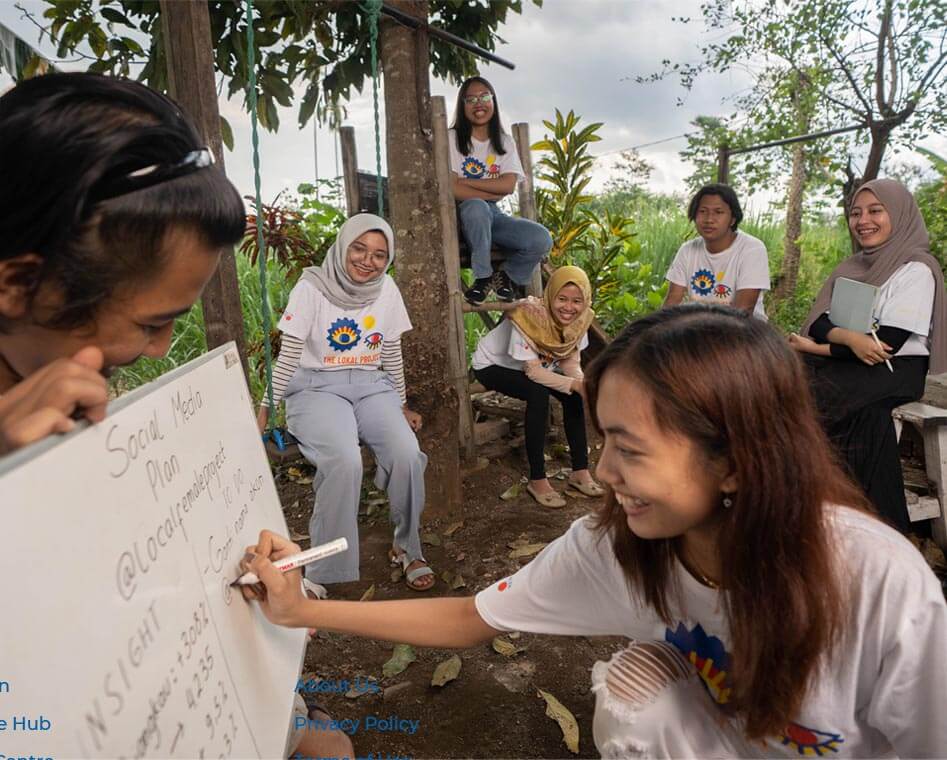Infographics: National Action Plan on Women, Peace and Security Development Steps
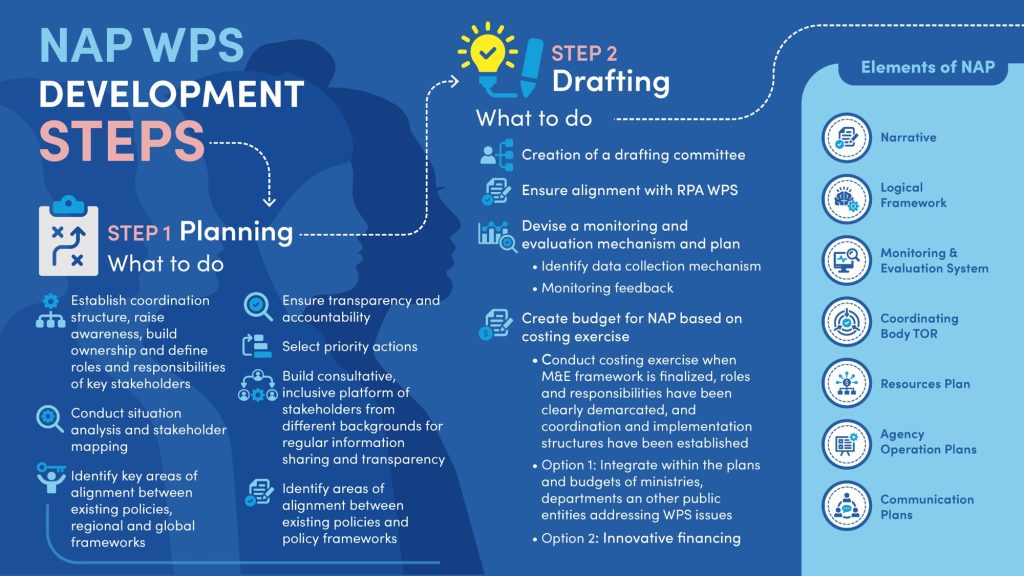
South-East Asia has a long history of innovative national and local approaches to peace and security, often led by women. The Regional Plan of Action on Women, Peace and Security of the Association of Southeast Asian States (ASEAN), launched in 2022, builds on consolidating the past and ongoing work of the region on pertinent issues […]
Troubling masculinities: a feminist, relational approach to researching sexual exploitation and abuse by peacekeepers
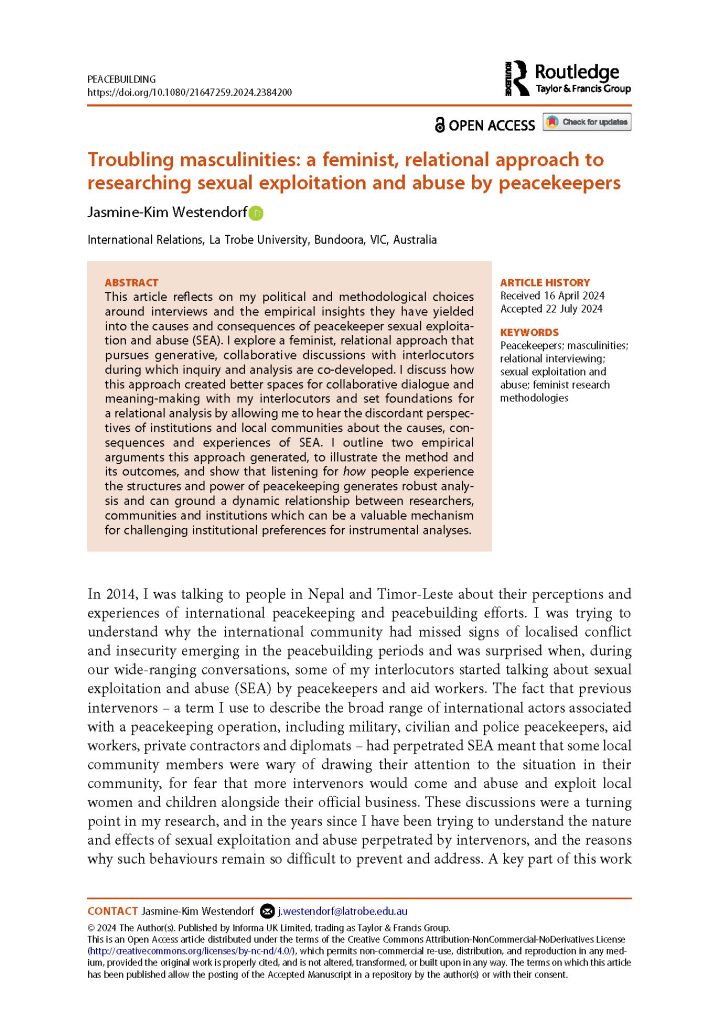
This article reflects on my political and methodological choices around interviews and the empirical insights they have yielded into the causes and consequences of peacekeeper sexual exploitation and abuse (SEA). I explore a feminist, relational approach that pursues generative, collaborative discussions with interlocutors during which inquiry and analysis are co-developed. I discuss how this approach […]
Violence and hegemonic masculinities in Timor-Leste – on the challenges of using theoretical frameworks in conflict-affected societies
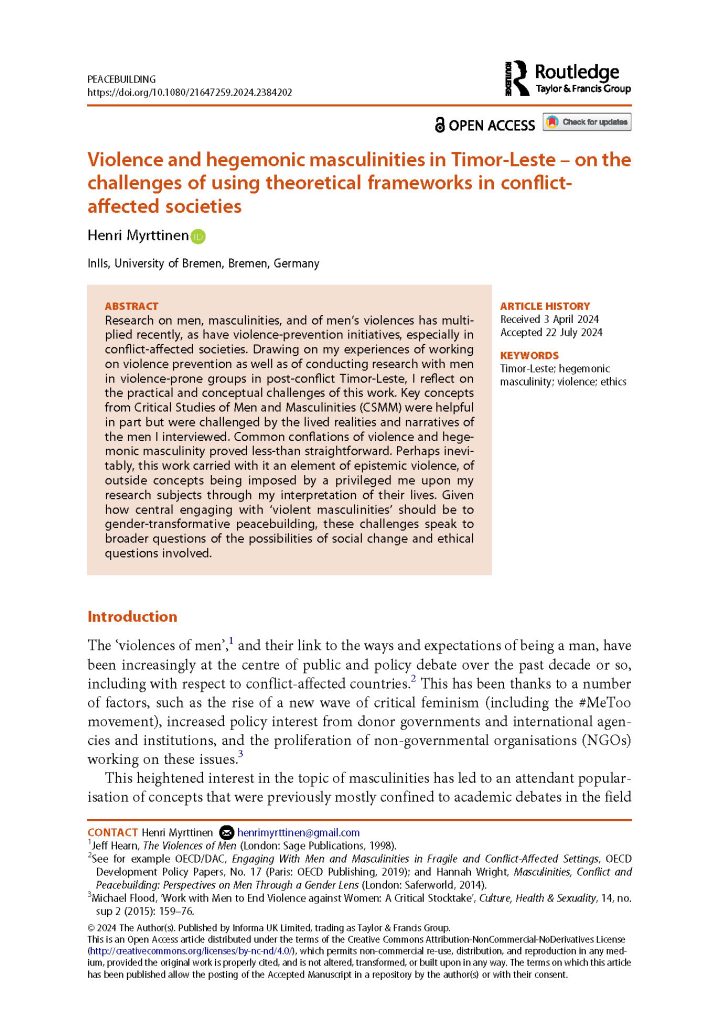
Research on men, masculinities, and of men’s violences has multiplied recently, as have violence-prevention initiatives, especially in conflict-affected societies. Drawing on my experiences of working on violence prevention as well as of conducting research with men in violence-prone groups in post-conflict Timor-Leste, I reflect on the practical and conceptual challenges of this work. Key concepts […]
Locating violence-resistant masculinities in sites of conflict
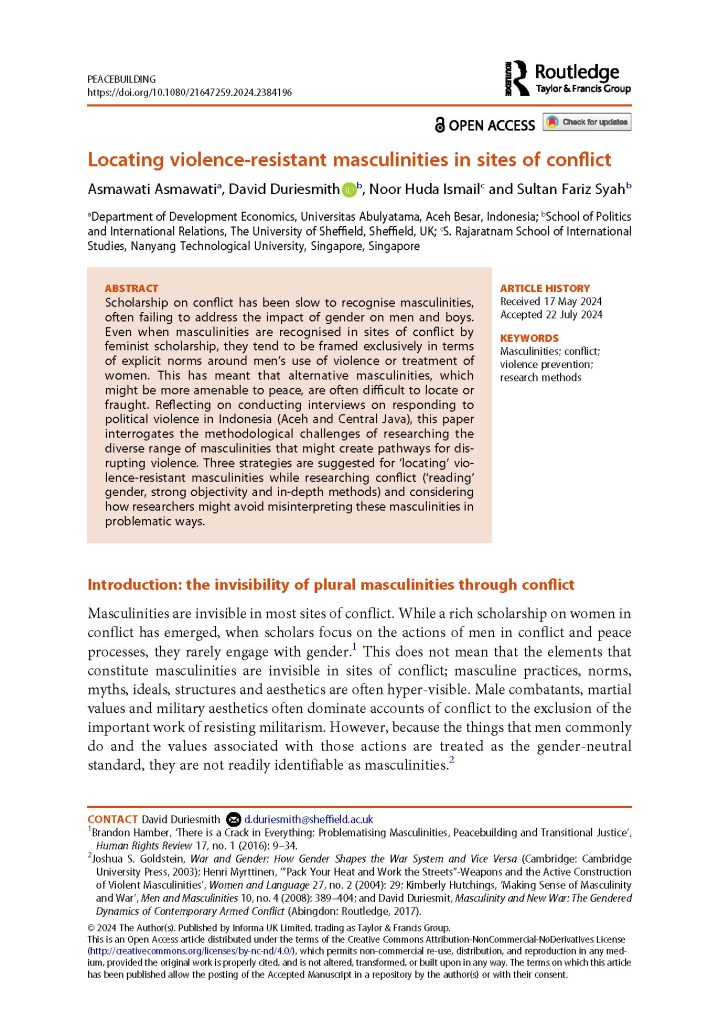
Scholarship on conflict has been slow to recognise masculinities, often failing to address the impact of gender on men and boys. Even when masculinities are recognised in sites of conflict by feminist scholarship, they tend to be framed exclusively in terms of explicit norms around men’s use of violence or treatment of women. This has […]
The challenges and opportunities of researching masculinities during peace processes
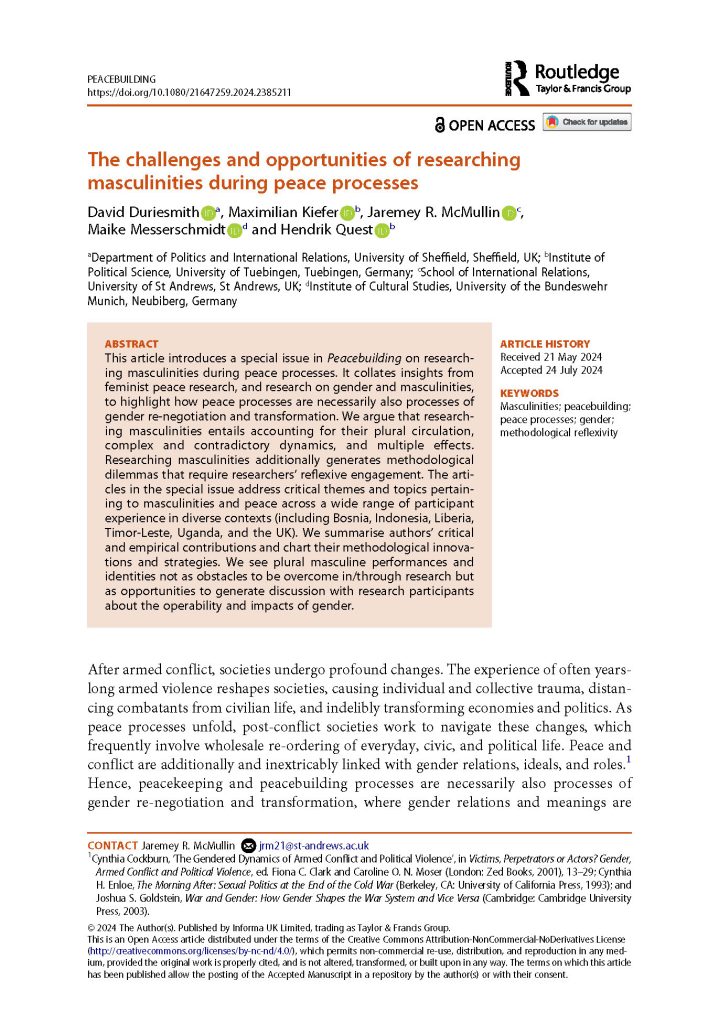
This article introduces a special issue in Peacebuilding on researching masculinities during peace processes. It collates insights from feminist peace research, and research on gender and masculinities, to highlight how peace processes are necessarily also processes of gender re-negotiation and transformation. We argue that researching masculinities entails accounting for their plural circulation, complex and contradictory dynamics, and […]
Digital peacekeeping, cyborg soldiers and militarised masculinities: a posthuman critique
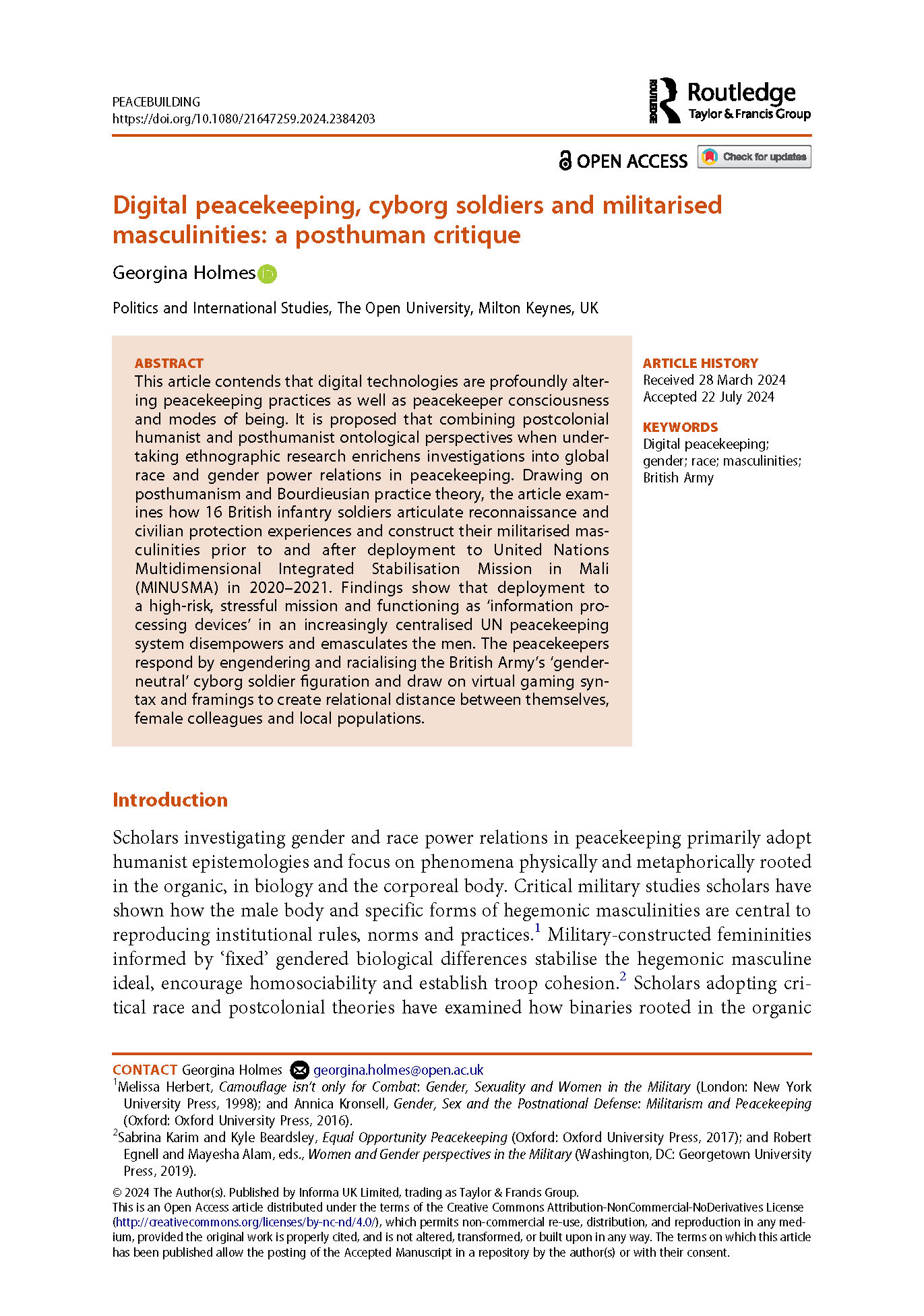
This article contends that digital technologies are profoundly altering peacekeeping practices as well as peacekeeper consciousness and modes of being. It is proposed that combining postcolonial humanist and posthumanist ontological perspectives when undertaking ethnographic research enrichens investigations into global race and gender power relations in peacekeeping. Drawing on posthumanism and Bourdieusian practice theory, the article […]
Good ones and bad ones: gendered distortions and aspirations in research with conflict-affected youth in Liberia
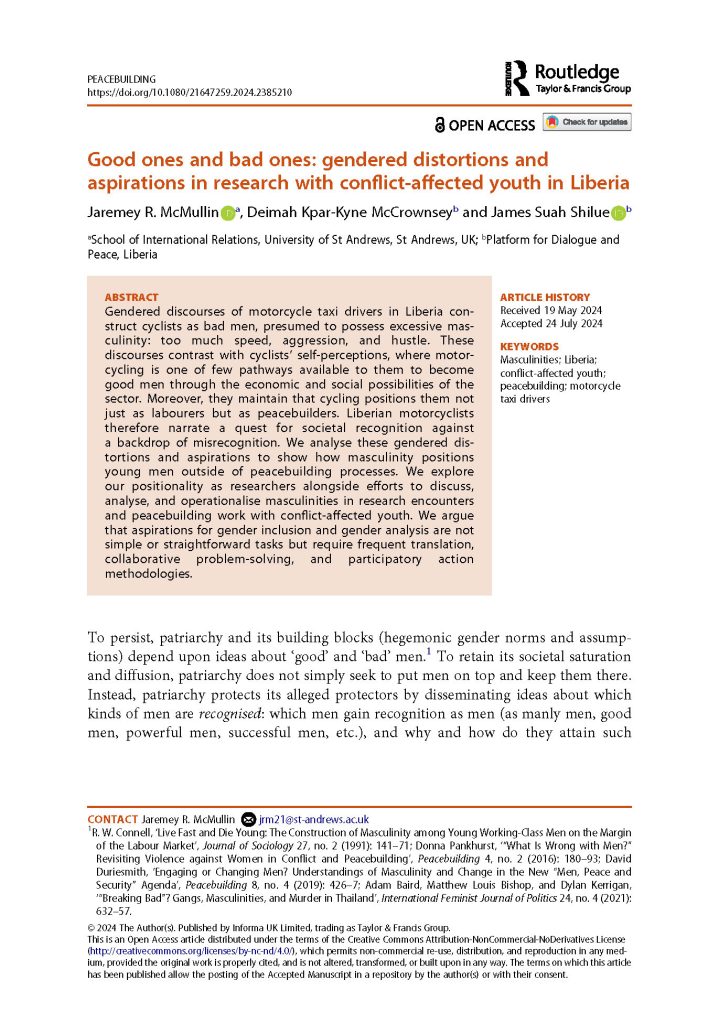
Gendered discourses of motorcycle taxi drivers in Liberia construct cyclists as bad men, presumed to possess excessive masculinity: too much speed, aggression, and hustle. These discourses contrast with cyclists’ self-perceptions, where motorcycling is one of few pathways available to them to become good men through the economic and social possibilities of the sector. Moreover, they […]
Interviews on masculinities in post-conflict contexts as a process of three translations
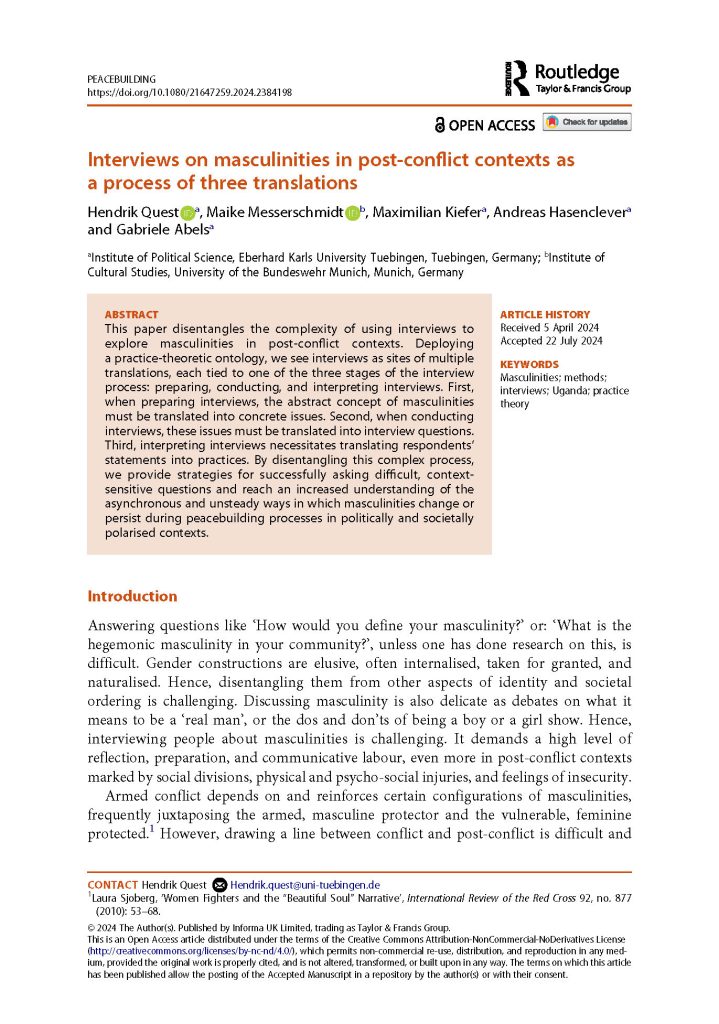
This paper disentangles the complexity of using interviews to explore masculinities in post-conflict contexts. Deploying a practice-theoretic ontology, we see interviews as sites of multiple translations, each tied to one of the three stages of the interview process: preparing, conducting, and interpreting interviews. First, when preparing interviews, the abstract concept of masculinities must be translated […]
Gender as an analytic lens for agonistic peace: insights from Colombia’s Truth Commission
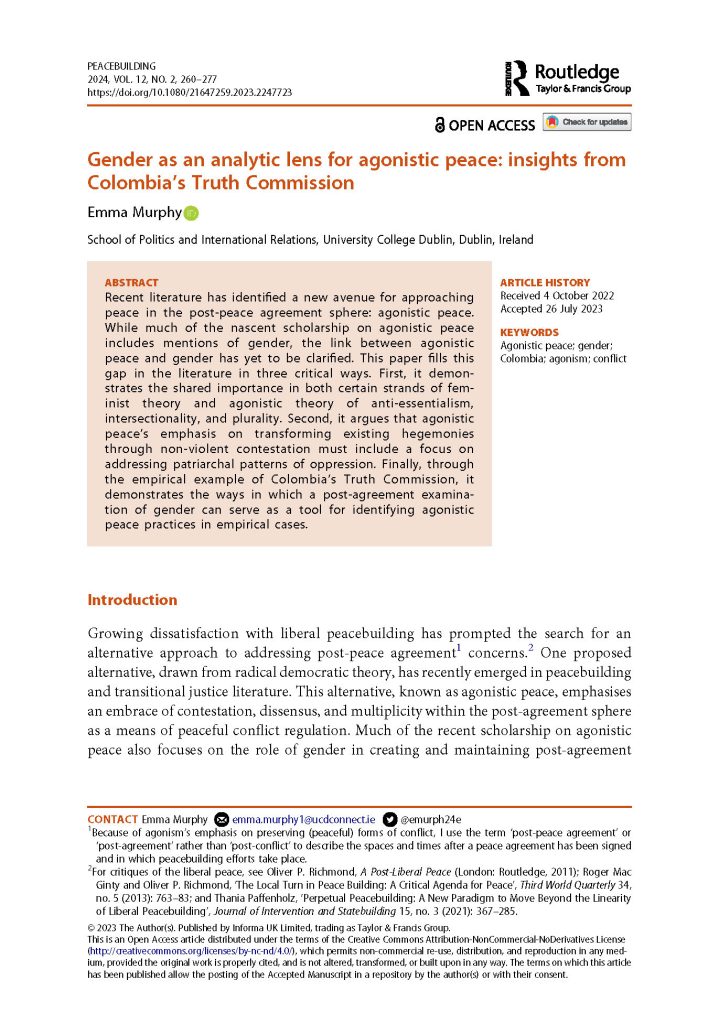
Recent literature has identified a new avenue for approaching peace in the post-peace agreement sphere: agonistic peace. While much of the nascent scholarship on agonistic peace includes mentions of gender, the link between agonistic peace and gender has yet to be clarified. This paper fills this gap in the literature in three critical ways. First, […]

